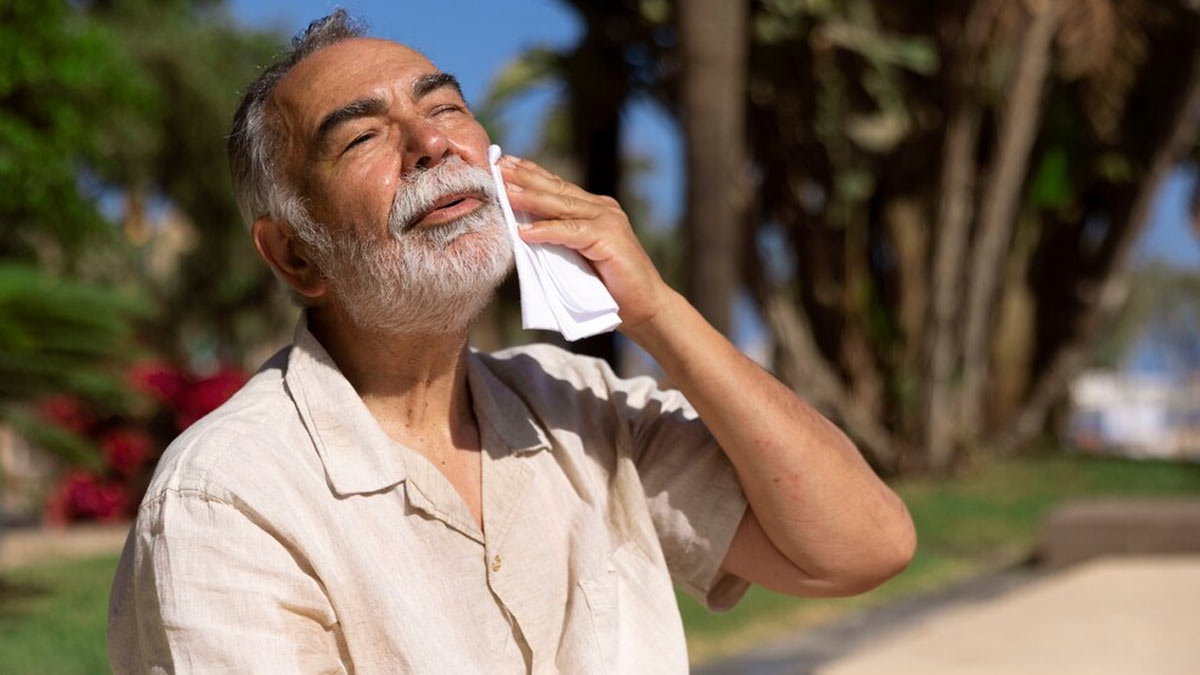
During summer, the temperature can rise to a high level, giving rise to heat waves. Though extreme heat and high temperatures can be dangerous for everyone, seniors are particularly vulnerable to them. This happens because as we age, our bodies become less efficient at regulating temperature, making us more susceptible to heat exhaustion, heat stroke, dehydration, and other heat-related illnesses. Here is how seniors can protect themselves from extreme heat during summer. To know more about this, we spoke to Dr J Harikishan, Senior General Physician, Kamineni Hospitals, Hyderabad.
Table of Content:-
Common Health Risks for Seniors During a High Temperature
Before we dive into the tips, let us take a closer look at the health risks that seniors face during extreme heat. According to the experts at the National Institute on Aging, part of the National Institutes of Health, during the summer, older adults are at a significantly elevated risk of heat-related disorders, collectively known as hyperthermia.
According to Dr Harikishan, “Heat stroke, heat oedema (swelling in your ankles and feet when you get hot), heat syncope (sudden disorientation after exercising in the heat), heat cramps, and heat exhaustion are a few examples of hyperthermia.”

Also Read: Heat Stroke In Children: Expert Tips To Keep Them Safe During Hot Weather
How to Recognise Heat-Related Illnesses
It is important to know the signs of heat-related illnesses so you can take action if needed.
- Confusion or disorientation
- Loss of consciousness
- Rapid heartbeat
- Rapid breathing
- Dry and hot skin (with no sweating)
- Seizures
- Nausea or vomiting
Tips for Staying Cool During
According to the National Institute of Ageing, to lower the risk of heat-related illness, it is recommended to take the following steps:
Stay Hydrated

Dr Harikishan recommended drinking lots of fluid, such as water, fruit or vegetable juices, or electrolyte-containing beverages. He added, “You should avoid alcohol and caffeinated beverages. If your doctor has advised you to reduce your liquid intake, ask about the ways to keep yourself cool when it is hot.”
Keep Your Premises Cool
He said, “If you don't have air conditioning or fans in your house, strive to keep your room as cool as possible.” He added that you should limit the use of an oven, close shades, blinds, or curtains during the warmest part of the day, and leave windows open at night.
Dress For The Weather

He said that you should dress appropriately for the weather. “Dress in light-coloured and loose-fitting garments. You can wear cotton clothes instead of synthetic clothes, as the former may provide a cooling effect,” he added.
Avoid Outdoor Activities When It Cool
Dr Harikishan said, “When it is hot, you should avoid outdoor exercise and physical activities. Instead, look for places where you may be active while being cool indoors.” He added, “If you must go outside, try to keep your time to a minimum and avoid congested areas. You should plan your activities outside peak hours (usually between 11 am-4 pm).”
Also Read: Healthy Eating In Hot Weather: Best Foods to Beat the Heat
Apply Sunscreen
Dr Harikishan advised, “You should apply a broad-spectrum sunscreen with a Sun Protection Factor (SPF) of 15 or higher and reapply it throughout the day, especially if your skin is continuously exposed to the sun. You should also wear a hat, sunglasses, and other protective clothes.”
Talk To Your Doctor
You should also talk to your doctor about whether your medication can make you more likely to get overheated or sunburned.
Bottomline
Seniors are at a higher risk for heat-related illnesses during high temperatures, including heat waves, but these steps can help you protect yourself. If you experience any symptoms, make sure to talk to your doctor about it and get appropriate treatment.
[Disclaimer: The information in this article is provided by a registered medical practitioner. However, we recommend you consult your healthcare provider for accurate diagnosis and treatment.]
Also watch this video
How we keep this article up to date:
We work with experts and keep a close eye on the latest in health and wellness. Whenever there is a new research or helpful information, we update our articles with accurate and useful advice.
Current Version